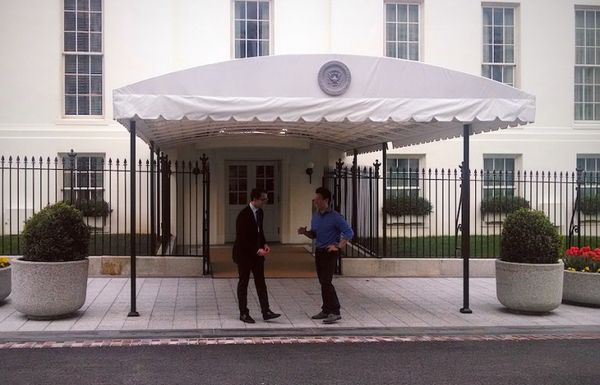When I was in DC working as a Presidential Innovation Fellow, one of our objectives was to drive adoption for President Obama’s Executive Order to make all government information open, freely accessible, and machine-readable as the new default. That EO was backed up by a memo from the Office of Management and Budget known as M-13-13. Broadly this entire initiative was known as the Federal Open Data mandate.
The goal of this mandate was two-fold:
- it was meant to spur economic development. Did you know that GPS was originally a military technology that President Reagan made available to the public? And that most weather apps get their data from government agencies like the National Oceanic and Atmospheric Administration? The thesis was that entrepreneurs could leverage these freely available government IP and data to build businesses that benefit consumers and create jobs.
- There was also a moral component. Since the government is funded primarily through taxpayer dollars, technically the data created by the government should belong to the people, as long as it didn’t compromise national security.
Anyway, we had these standing meetings with the White House Office of Science Technology & Policy where we would discuss how we could get federal agencies to comply with the new mandate, which required them to create an inventory of all their datasets, mark them as public (and in what form), private but could be made public, or private and needs to stay private (and why), and then create a timeline for how they were going to make the second type of data public.
One of the reasons why PIF’s were brought in was for their connections to innovators in the private sector who could give suggestions and ideas for what kind of data they might find valuable. As I was working at the Smithsonian which is technically a federal trust rather than an agency, they were not directly affected by the EO or M-13-13. Still, we helped the cause by organizing a hackathon that allowed developers to build on one of their (otherwise private) API’s.
Getting to my point though: I kept hearing those OSTP people talk about how we, the PIFs, “should be having ongoing conversations with the private sector on their interest in government data”.
This was foreign to me as someone who focuses on making things. You have meetings when you want to ask for something, discuss something, or otherwise have an intentional conversation. What they were saying was essentially that we should be having meetings with no agenda to with entrepreneurs “just to stay in the loop”.
That seemed dumb to me.
But over time I realized the difference between having connections and having conversations. When you have connections, you have to deliberately ask for someone’s time and have a specific ask. That’s fine if what you need is important and urgent — like asking for referrals to great engineers, or an intro to an investor. But when it’s to ask about something that’s less time-sensitive, the request might be declined.
But when you’ve established enough credibility with people and enough trust that they are willing to meet with you (ideally in person) regularly because there’s an understanding that useful information / help will be exchanged, that’s incredibly powerful. You can throw out ideas that might sound half-baked in an email to get a response, and you can listen for passing comments that never would have been sent to you because likewise, it didn’t seem that relevant or important. The resolution of your information exchange is higher. You can also prevail on people to do things in a more compelling manner that would never work over the phone or email or a very structured meeting.
Of course, this is time-consuming and not for everyone. It’s why you eventually need to hire sales and BD people if you’re more of a product person, because some people just love doing these kinds of meetings.
Ultimately, I think recruiting entrepreneurs into government wasn’t just about getting agencies to “do agile” or “ship iteratively” but also to get us fellows to act a bit more like bureaucrats. Instead of just having a ton of meetings with Washington insiders, we were to have those conversations with our circle of innovators and private sector folks. Our connections were important, but they needed to be cultivated in the right way.

